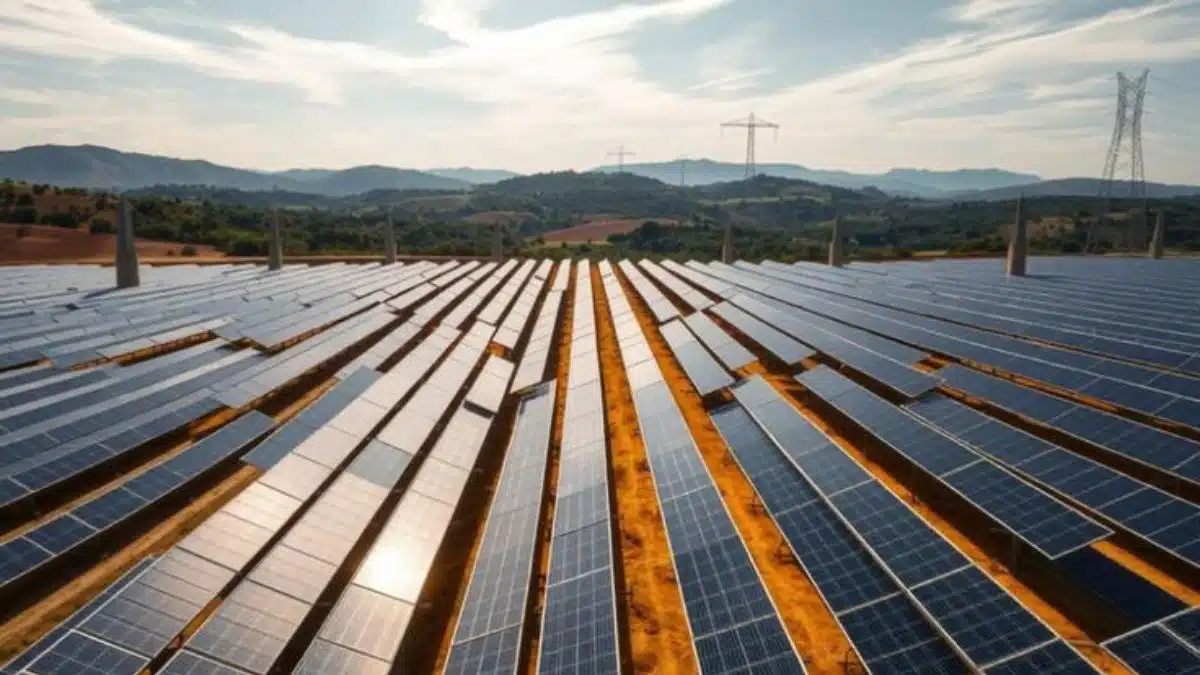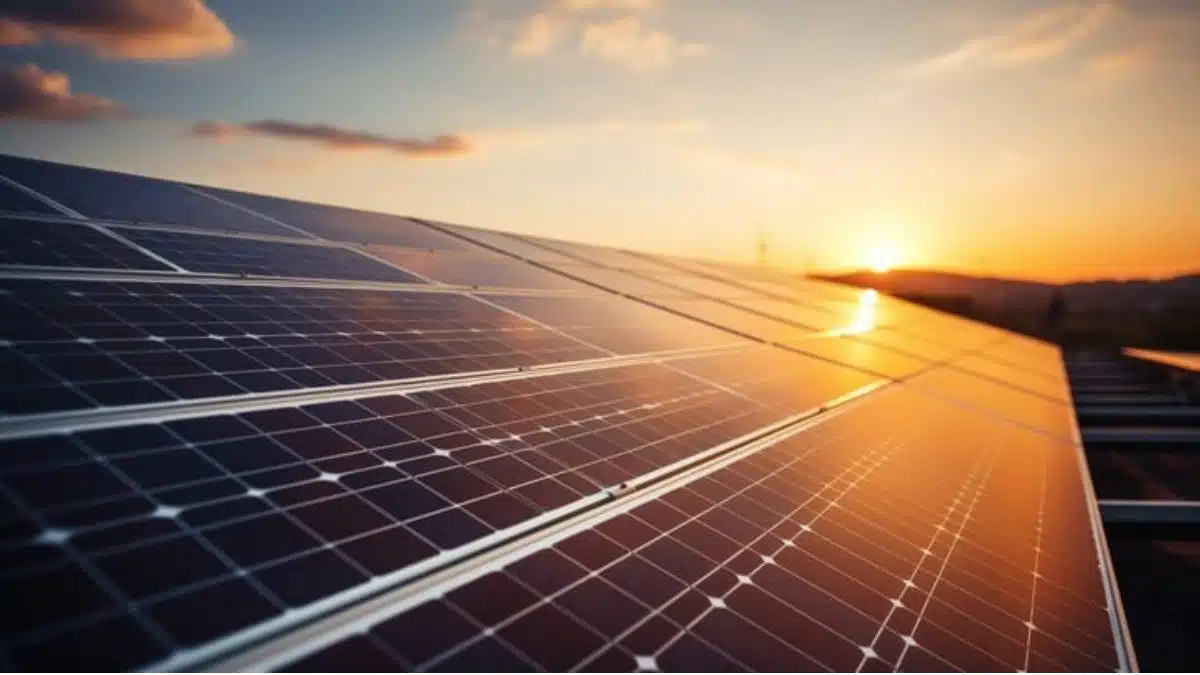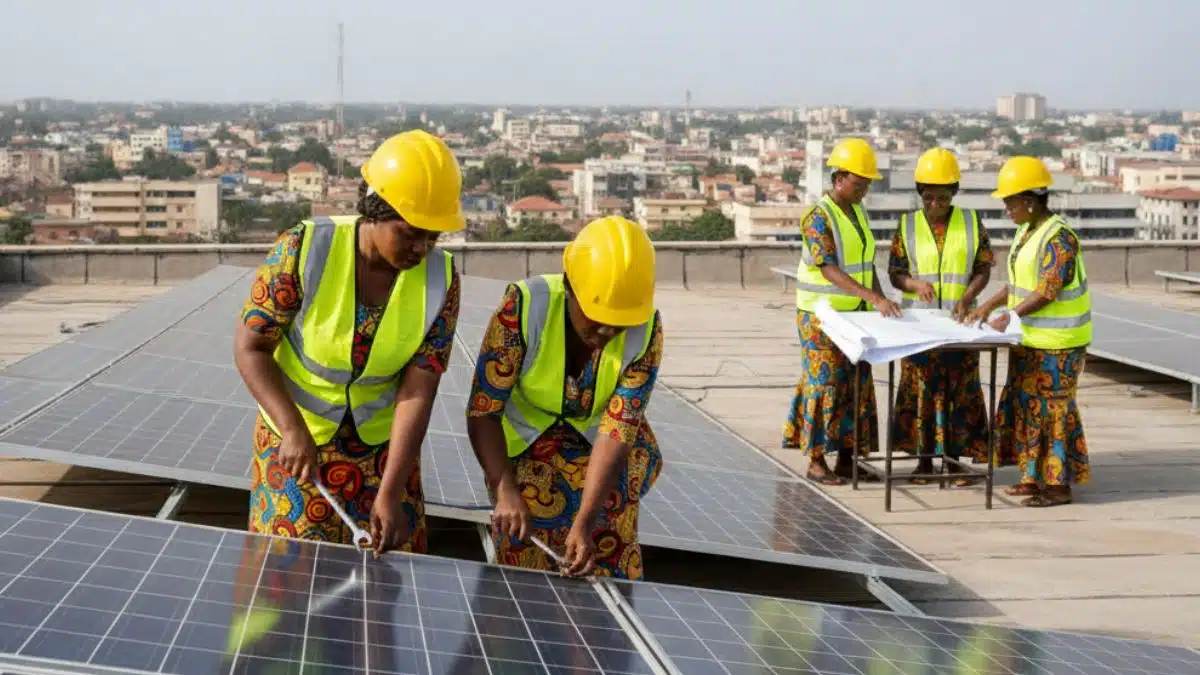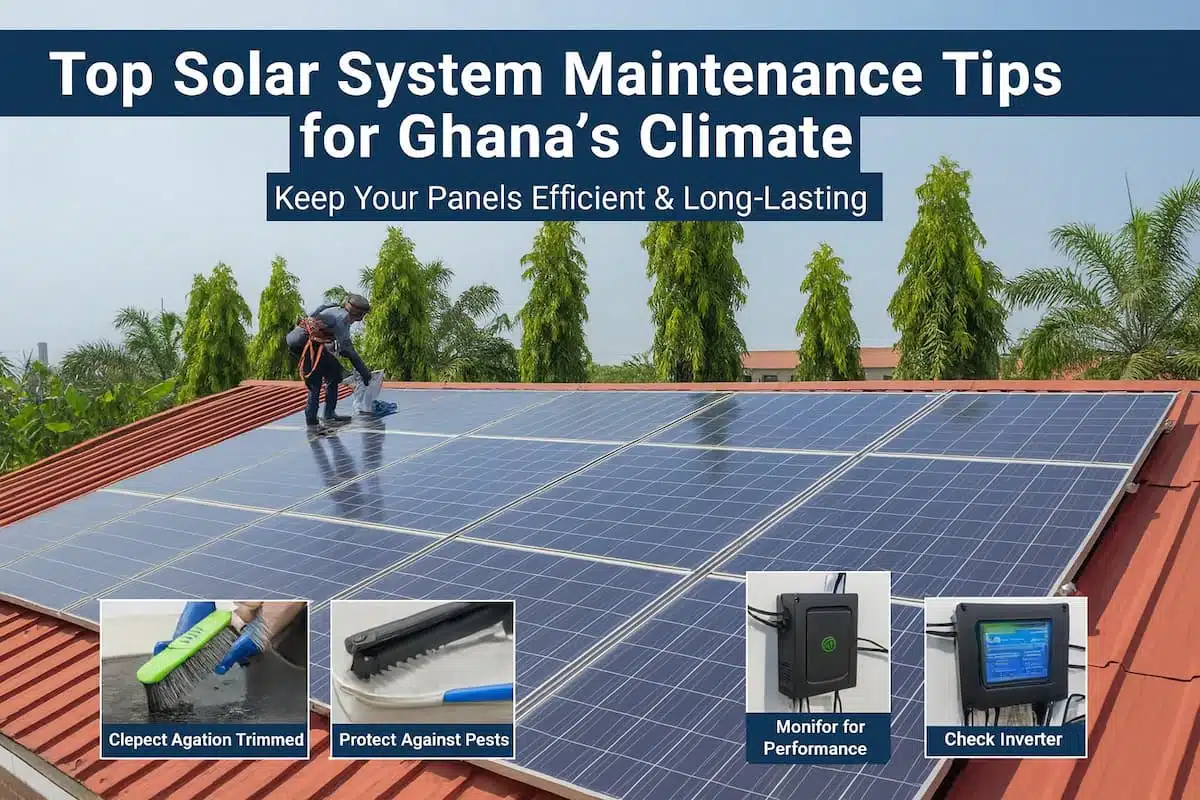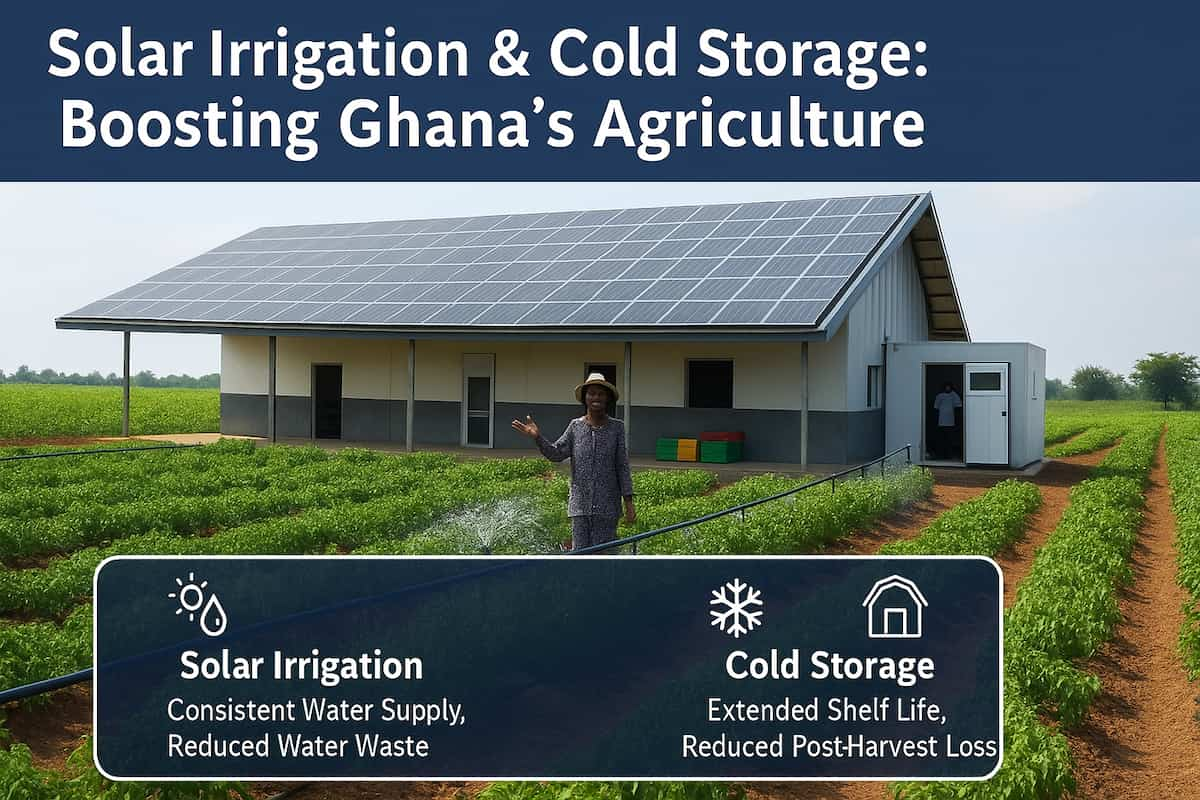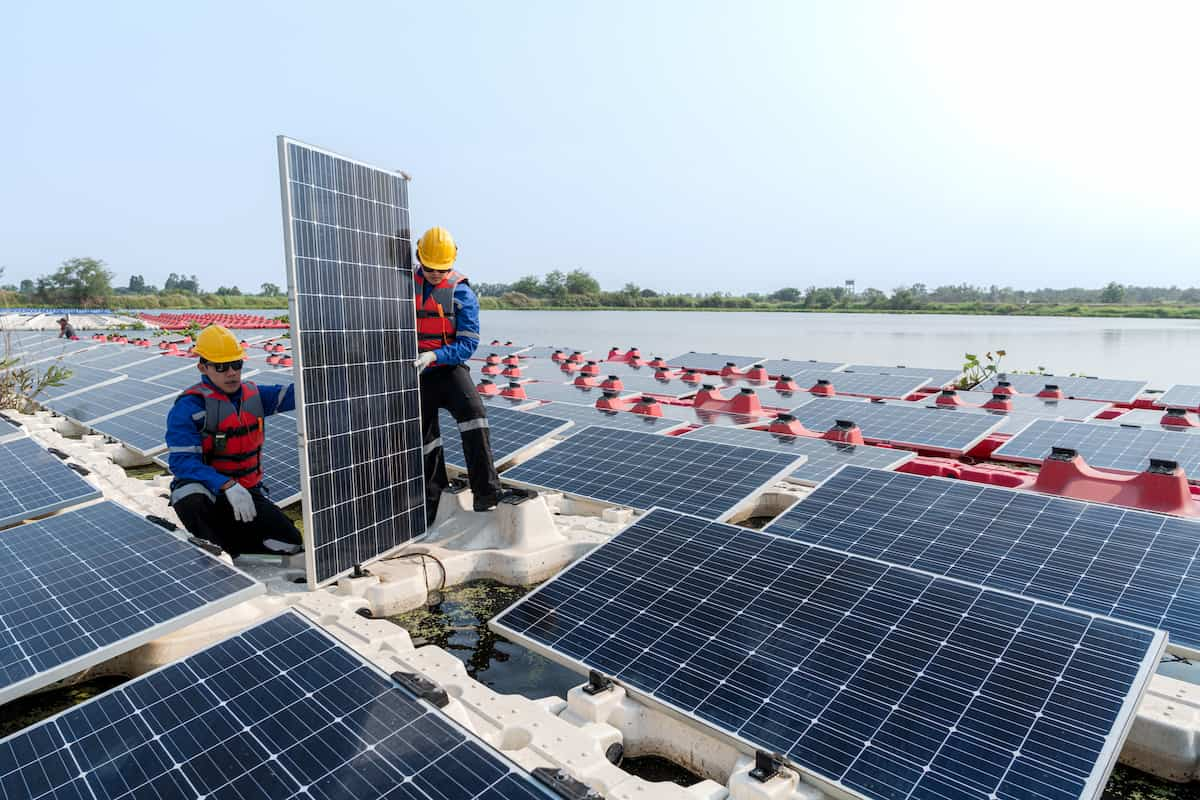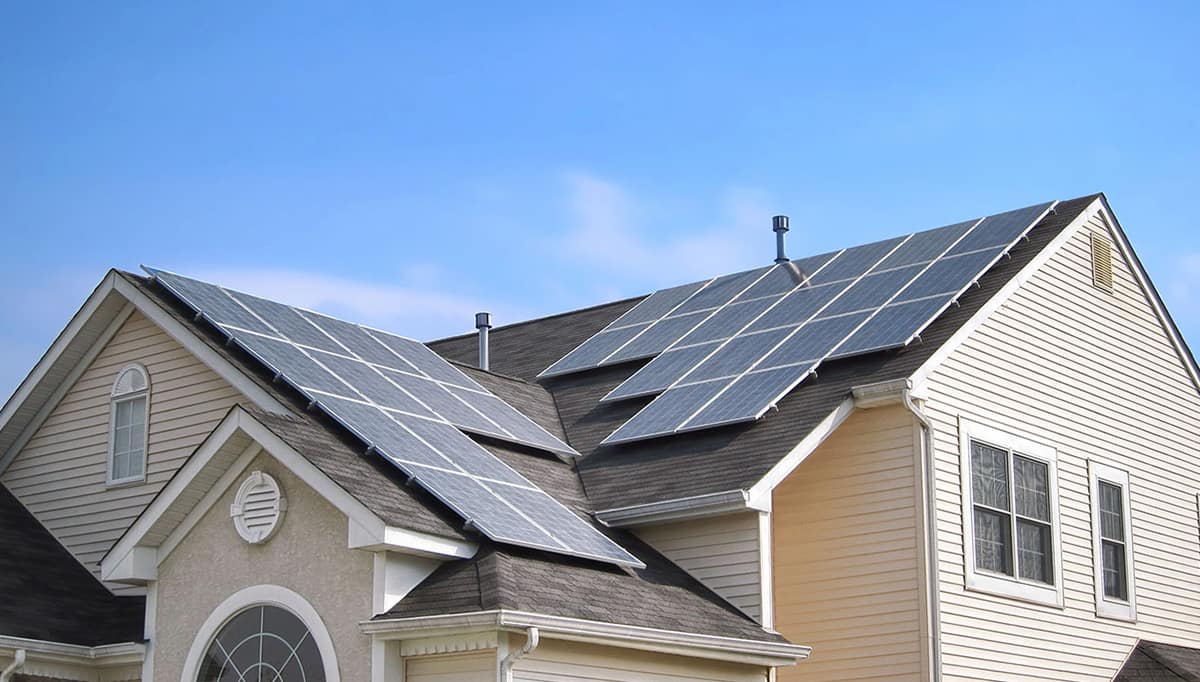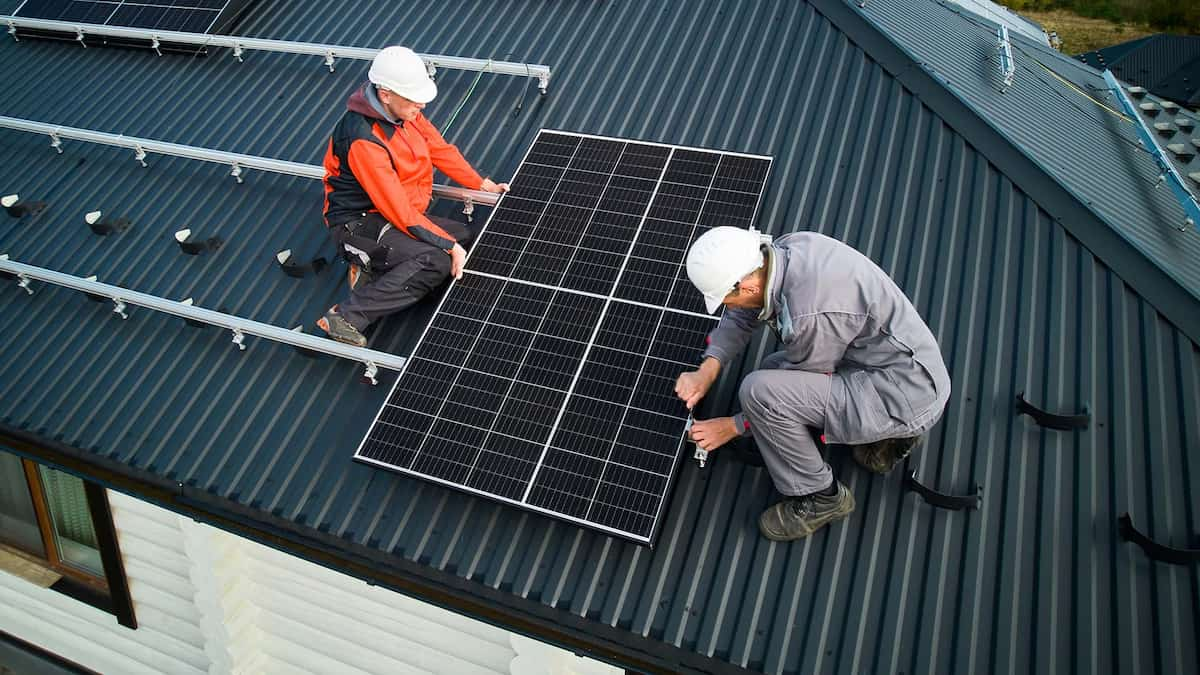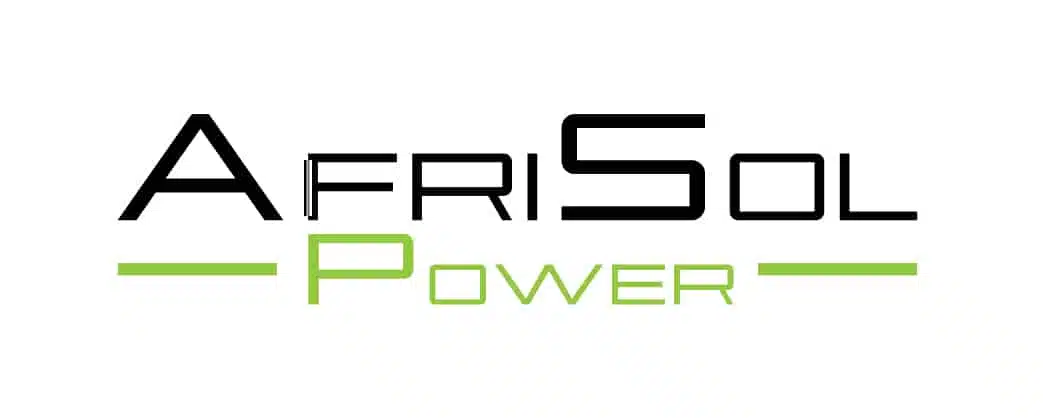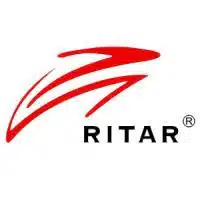Blogs
Solar-Powered Irrigation Systems : Revolutionizing Ghana’s Farms
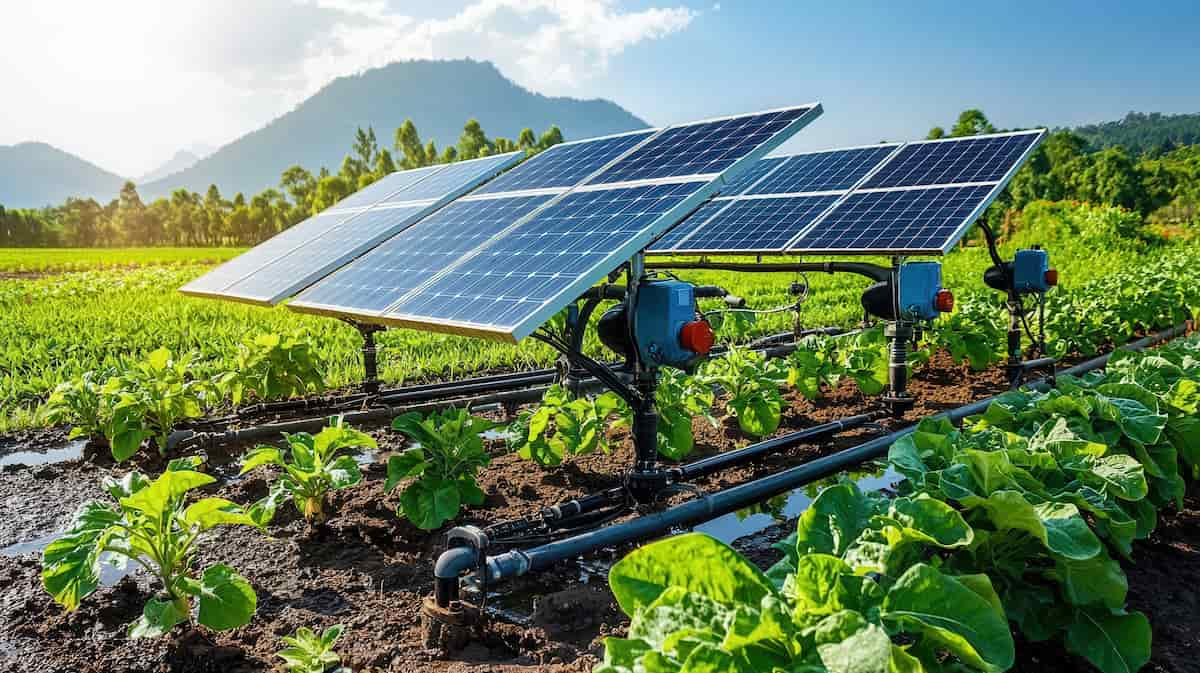
Solar-Powered Irrigation Systems : Imagine a world where your crops flourish, your water costs plummet, and your environmental impact decreases, all thanks to the power of the sun. This isn’t just a dream for farmers in Ghana.
If you’re a farmer seeking ways to enhance productivity, reduce costs, and adopt sustainable practices, then this is your golden opportunity. These innovative systems harness solar energy to deliver water efficiently to your fields, transforming your agricultural output and your livelihood.
Dive into this article to discover how solar-powered irrigation systems are revolutionizing agriculture in Ghana and how you can be part of this green revolution.
The Rise Of Solar-powered Irrigation
The rise of solar-powered irrigation in Ghana is transforming the agricultural landscape. As farmers face unpredictable weather patterns and high energy costs, solar technology offers a sustainable solution. This innovation is not just a trend but a necessity for boosting crop production and ensuring food security.
The Benefits Of Solar-powered Irrigation
Solar-powered irrigation systems reduce dependency on unreliable power grids. They provide a consistent water supply, which is crucial for crop growth. With solar panels, farmers can save on electricity bills and invest more in their farms.
Imagine a smallholder farmer in Northern Ghana who struggled to water his crops during the dry season. With a solar-powered system, he now irrigates his fields without worrying about power outages. This change has doubled his crop yield.
Cost-effectiveness Of Solar Technology
Many fear the initial cost of solar technology, but the long-term savings are significant. Once installed, solar panels have minimal maintenance costs. This makes them a cost-effective option for farmers of all scales.
Have you considered how much you spend on fuel for diesel pumps? Switching to solar cuts these expenses drastically, freeing up resources for other farming needs. Over time, the savings can be substantial, enhancing your farm’s profitability.
Environmental Impact And Sustainability
Solar-powered irrigation is an eco-friendly option that reduces carbon footprint. Unlike diesel pumps, solar systems emit no greenhouse gases. This aligns with global efforts to combat climate change.
By choosing solar, you contribute to a cleaner environment. This not only benefits your farm but also supports the health of your community. Sustainable practices ensure that future generations can continue to thrive.
Despite its advantages, solar-powered irrigation faces challenges like initial costs and technical knowledge. However, government subsidies and training programs are addressing these issues. Support from NGOs is also vital in facilitating access to technology.
Have you ever felt overwhelmed by the technical aspects of solar systems? Local workshops and community support can provide the knowledge you need. Engaging with these resources turns a daunting task into an achievable goal.
In embracing solar-powered irrigation, you not only enhance your farm’s productivity but also play a part in Ghana’s agricultural revolution. Are you ready to make the switch and see the benefits for yourself?
Benefits For Ghanaian Agriculture
In Ghana, agriculture is a lifeline for millions, providing food security and employment. Solar-powered irrigation systems offer transformative benefits for farmers. These systems harness the abundant sunlight to supply water for crops, promising a brighter future for Ghanaian agriculture. 
Cost Efficiency
Solar-powered irrigation systems reduce operational costs significantly. Traditional diesel pumps require ongoing fuel expenses, which can burden farmers financially. Solar systems, once installed, leverage free solar energy, cutting costs and allowing farmers to invest in other areas. Imagine the relief of reducing monthly expenses without sacrificing productivity.
Environmental Impact
Every time you choose solar, you contribute to a healthier planet. Diesel pumps emit harmful pollutants, worsening air quality. Solar panels, however, produce clean energy, minimizing environmental damage. This choice not only supports the Earth but also aligns with global sustainability goals. How much cleaner can your farming operations get?
Increased Crop Yield
Reliable irrigation means healthier crops. Solar-powered systems ensure consistent water supply, crucial during dry spells. This leads to robust crop growth and higher yields, enhancing food security and farmers’ income. Picture your fields lush and thriving, ready for harvest, thanks to dependable irrigation.
Have you considered the benefits of solar irrigation for your farm? The potential for growth, savings, and sustainability is immense. It’s time to embrace innovation and elevate Ghanaian agriculture.
Technological Advancements
The agricultural sector in Ghana is evolving rapidly. Solar-powered irrigation systems are at the forefront. These systems harness the sun’s energy to boost crop yields. Technological advancements make these systems more efficient and reliable. Farmers can now grow crops in areas with scarce water resources. This transformation is enhancing food security in Ghana.
Solar Panel Innovations
Solar panels have become more efficient over the years. Modern panels capture more sunlight, even on cloudy days. This ensures a steady supply of energy for irrigation. Improved materials increase the durability of the panels. They can now withstand harsh weather conditions common in Ghana. Maintenance of these panels is simple, reducing costs for farmers. Innovative designs allow easy installation on farms of all sizes.
Smart Irrigation Systems
Smart irrigation systems use technology to conserve water. Sensors monitor soil moisture and weather conditions. These sensors provide real-time data to farmers. Farmers can then adjust water usage based on this data. This prevents over-watering and reduces water waste. The systems can be controlled remotely through smartphones. This convenience saves time and labor for farmers. Automated scheduling helps optimize water use during critical growth stages.
Challenges And Solutions
Solar-powered irrigation systems can transform agriculture in Ghana. Yet, they face challenges. These hurdles can slow adoption. Let’s explore these challenges and possible solutions.
Initial Investment Costs
Solar systems need a high initial investment. This cost can deter farmers. Many small-scale farmers lack funds. They find it hard to gather money for solar panels. Financial support can help. Government subsidies or loans can reduce the burden. NGOs can also assist. Reducing initial costs makes solar irrigation more accessible.
Maintenance And Repair
Solar systems need regular maintenance. This ensures they work efficiently. In Ghana, skilled technicians may be scarce. Farmers might struggle to find help. Training local technicians offers a solution. This creates jobs and supports farmers. Accessible repair services ensure systems run smoothly.
Access To Technology
Many farmers lack access to modern technology. They may not know how to use solar systems. This limits their adoption. Training programs can bridge the gap. Educating farmers empowers them. It helps them utilize solar technology fully. Workshops and demonstrations can be effective. They show the benefits and usage of solar systems.
Success Stories From Ghana
Ghana is witnessing a transformation in agriculture, thanks to solar-powered irrigation systems. These innovations are changing lives and boosting crop yields across the nation. Success stories from Ghana showcase the power of renewable energy in farming, offering practical lessons for farmers globally.
Success Story: The Smallholder Farmer’s Triumph
Meet Kwame, a smallholder farmer from the northern region of Ghana. Struggling with unpredictable rainfall, he turned to solar-powered irrigation. This decision paid off. Kwame now enjoys increased crop yields and consistent harvests. His story inspires local farmers to embrace solar technology.
Impact On Community: A Ripple Effect
The benefits extend beyond individual farmers like Kwame. Communities are seeing positive changes. Improved irrigation systems lead to better food security and economic growth. Local markets thrive as farmers produce surplus crops. It’s a ripple effect benefiting everyone.
Women In Agriculture: Breaking Barriers
Solar-powered irrigation is empowering women in farming. In rural areas, women face challenges accessing resources. Solar systems break these barriers. Women now manage their farms independently, contributing to family income and community development.
Environmental Benefits: A Greener Future
Solar irrigation isn’t just good for farmers; it’s good for the planet. It reduces reliance on fossil fuels and minimizes environmental impact. Ghana is setting an example for sustainable agriculture. How can other countries follow suit?
Lessons Learned: Practical Tips For Farmers
Consider the experiences from Ghana’s success stories. Start small and scale up. Engage local communities and seek partnerships. Embrace technology while maintaining traditional farming practices. What steps will you take to enhance your farming methods?
These success stories from Ghana highlight the transformative power of solar-powered irrigation systems. They offer practical insights and inspire farmers worldwide to explore renewable solutions. What can you learn from Ghana’s agricultural journey?
Future Prospects
Solar-powered irrigation systems offer a sustainable solution for agriculture in Ghana. They provide reliable water supply, enhancing crop yield. This technology supports farmers by reducing costs and increasing productivity.
Solar-powered irrigation systems hold promising future prospects for agriculture in Ghana. These systems can transform farming practices and enhance crop yields. As Ghana seeks sustainable solutions, solar-powered irrigation is a key focus. This technology reduces reliance on erratic rainfall and expensive diesel pumps. Farmers can irrigate consistently, improving productivity. This boosts food security and livelihoods.
Government Initiatives
The Ghanaian government is championing renewable energy. They encourage solar-powered irrigation through various policies. These initiatives aim to support farmers in adopting clean energy solutions. Subsidies and financial aid programs help farmers invest in solar systems. Training sessions educate farmers on system installation and maintenance. Government partnerships with NGOs promote awareness and access. These efforts drive solar irrigation adoption across regions.
Potential For Expansion
Solar-powered irrigation has vast expansion potential in Ghana. Many regions suffer from water scarcity and unreliable power. Solar systems can address these challenges effectively. They offer a sustainable and efficient solution for irrigation needs. The technology is scalable, fitting both small and large farms. As infrastructure improves, more areas can access solar-powered irrigation. Local businesses can benefit by offering system installation services. This creates jobs and supports economic growth.
Frequently Asked Questions
How Do Solar Irrigation Systems Work?
Solar irrigation systems use solar panels to power water pumps. These pumps draw water from sources like rivers or wells. The energy harnessed from the sun is converted into electricity. This electricity operates the pump, delivering water to crops. It reduces reliance on fossil fuels and cuts operational costs.
Are Solar-powered Systems Cost-effective?
Yes, solar-powered systems are cost-effective. They reduce energy costs by harnessing free solar energy. Initial setup may be pricey, but savings accrue over time. Farmers enjoy lower electricity bills and maintenance costs. This makes them a sustainable choice for long-term agricultural investment.
What Are The Benefits For Ghanaian Farmers?
Ghanaian farmers benefit from reliable water supply and reduced energy costs. Solar systems provide consistent irrigation, enhancing crop yields. They minimize reliance on erratic power sources. Additionally, these systems support sustainable farming practices and environmental conservation. This leads to increased productivity and income for local farmers.
Can Solar Irrigation Work In Cloudy Weather?
Yes, solar irrigation can work in cloudy weather. Modern solar panels are efficient and can capture diffuse sunlight. Although performance might slightly reduce, systems often include batteries. These batteries store excess energy for use during less sunny periods. Therefore, irrigation remains consistent despite cloudy conditions.
Conclusion
Solar-powered irrigation systems can greatly benefit Ghana’s agriculture. These systems harness sunlight, reducing reliance on costly fuel. Farmers can grow more crops and earn better income. Water supply becomes consistent, even during dry seasons. Sustainable practices can protect the environment.
Communities gain access to clean water and improved health. The future of farming in Ghana looks promising. Embracing solar technology brings hope and growth. Together, we can build a brighter agricultural future. Solar energy offers practical solutions for farmers. Let’s support this sustainable change in Ghana.










